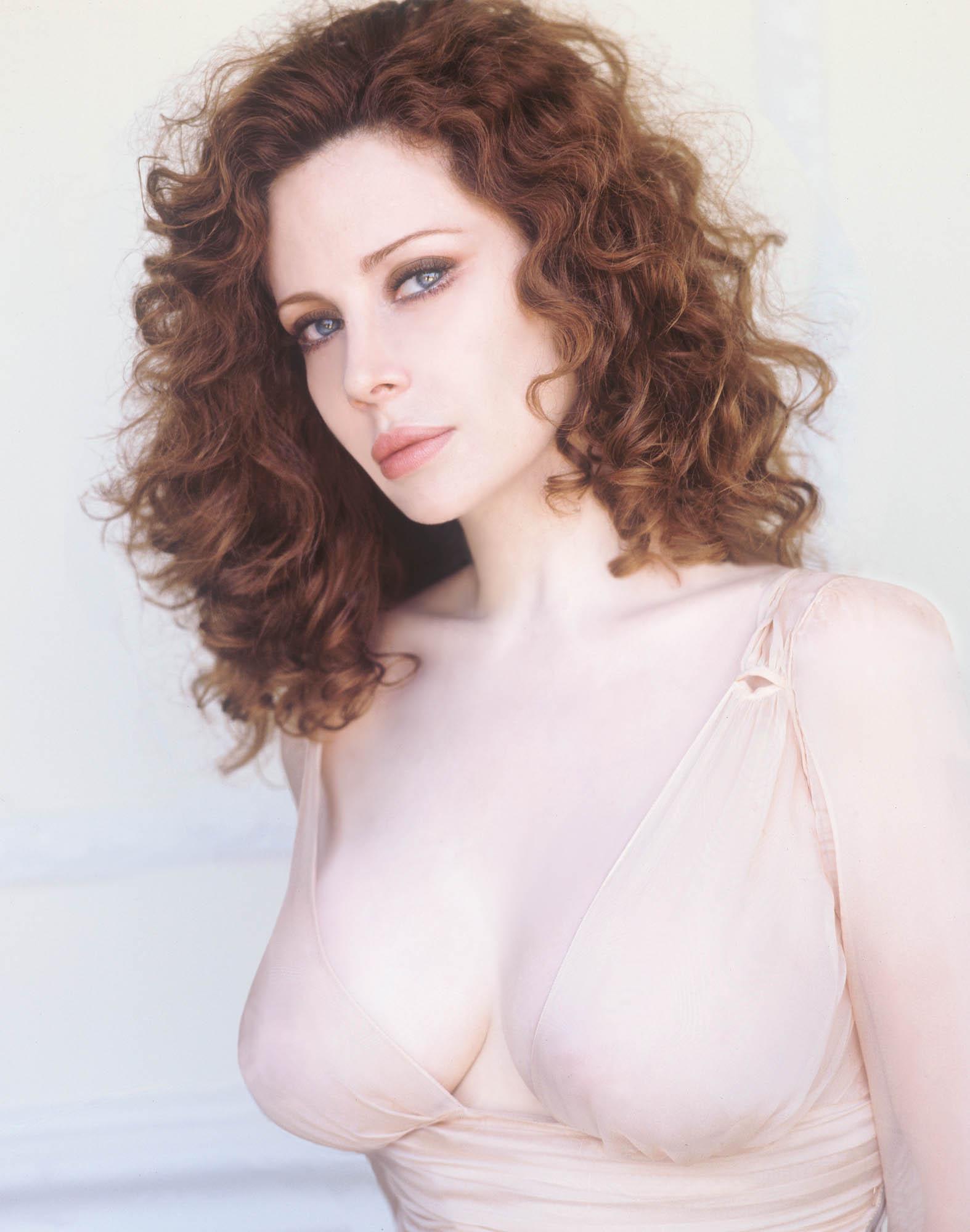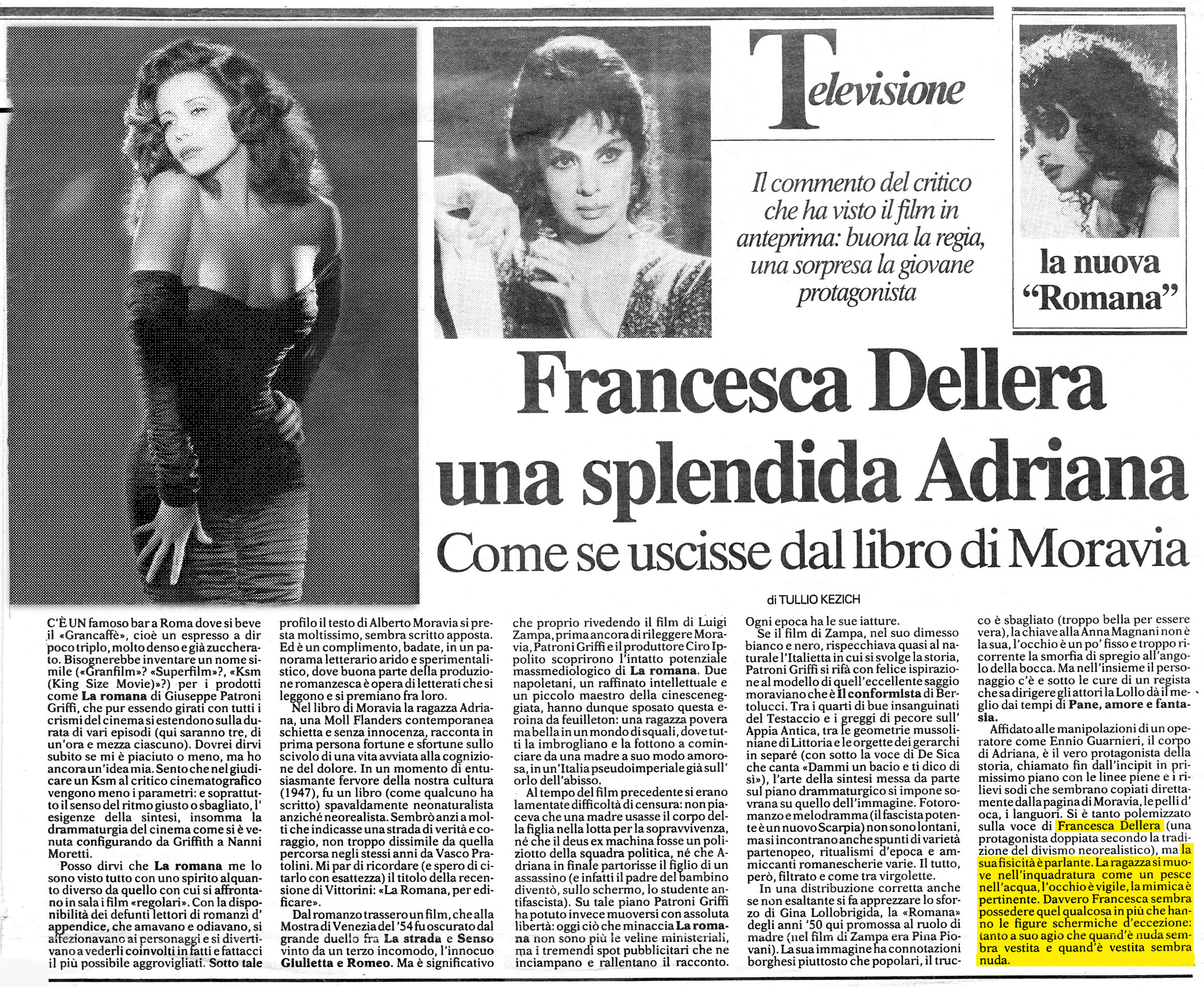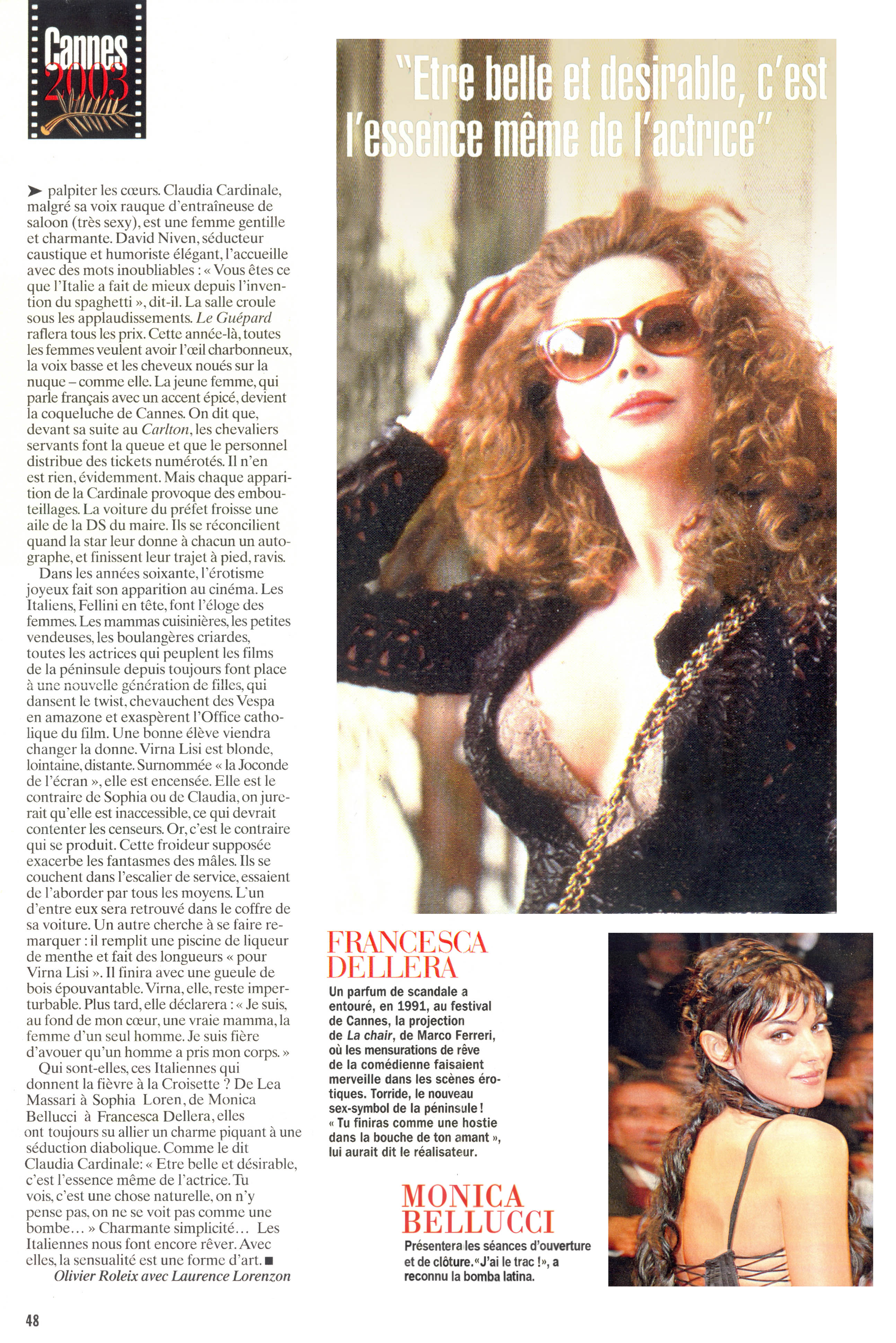
Over the phone from who knows where, Francesca Dellera can only be sheer speculation. A woman who, at a certain point in her life, has decided, in the Gozzano style, to make a "beautiful endless mystery" of herself. To play hide-and-seek with the world. Paris, London, Bahia, Calcutta, next door?
«I want to give you a clue, I'm in Europe.».
A woman’s posture, that's where it all begins. Lina Sotis must have said it. Where do we begin?
«Let’s start from Paris. I have recently been invited to the Festival du Cinema Italien for a retrospective of Marco Ferreri, launched by Laura Morante.... A beautiful thing.».
The French have a passion for Ferreri but also for Dellera, who was his muse.
«A passion either way. I have often fallen in love with the French in Paris.».
Francesca Dellera’s main thought today.
«I'm a restless woman, I have plenty of thoughts that cross my mind. I’d say it’s a congenital matter, unfortunately.».
A moody woman as well as always on-the-move.
«Marco Ferreri once told me: 'Your problem, Francesca, isn't achieving things, but wanting them after you've achieved them.».
In the part of Nanà, Zola's heroine became acquainted with luxury, pleasure and self-destruction.
«Just like Nanà, I've always been attracted by self-destruction but in the end I've always opted for life.».
Ferreri has also said of you: "The most beautiful skin in Italian cinema".
«I would describe ours as the immediate understanding between two anarchists. Ferreri was a free man, a cosmopolite just like myself. I find that the flaw of certain Italian Directors is remaining enclosed within their own boundaries. Not looking for new challenges.».
La carne [The Flesh] triumphed at Cannes. You, a woman to be totally consumed and venerated.
«Marco Ferreri based his film on me. He would come to my home with the screenwriter to get inspiration. 'Only you can play this part,' he used to say.».
One morning you wake up, put on your glasses and see your companion, Sergio Castellitto, for what he really is: an ugly, insignificant man.
«That's what happens in life at times: you idealize a man, then, one morning, you wake up and don’t recognize him anymore. In the film I look at Castellitto and say: 'And to think I've always had very handsome men.».
Is this true to life too?
«My father was a handsome man, he was very discreet. Perhaps I’ve always looked for someone who reminded me of him.».
The protagonist has a physical feeling for things, almost an erotic relationship with money.
«In the film, as in life, for me money represents freedom. The mere idea of being dependent on a man makes me cringe.».
One day, at the height of success, you just disappear. You become a “virtuoso” in the art of withdrawal. What happens?
«It's a question I'm often asked and have never answered. The truth is that a private matter had a devastating effect on my career. I put up with it without reacting, as I should and could have done best, hoping that in time everything would work out. That's not how it turned out to be.».
So you’re going to leave us hanging, breathless.
«Right now I don't feel like talking about what really happened. I don't rule out that I may do so in the future.».
Do you often go back to Italy?
«I'm very fond of Italy and go back often. But I don't fit in with this craving to show off, with this desperate need to be on the scene. You show yourself for the sake of being there, but you're nobody. Bukowski used to say: 'Style is important. Lots of people shout their truths, but without style'.».
You just like Carla Bruni and Monica Bellucci, famous Italian women in Paris.
«I've suffered a great deal personally because of the prejudices of others, and today it annoys me when they criticize Carla Bruni just because she pursued her desire and achieved her goal.».
Nearly as if you have been handed down in the movie world, from Tinto Brass to Marco Ferreri, you represent the prototype of cannibal love, of the woman merely to be possessed.
«I detest being possessed because I don't like possessing. I have often run away from possessive men, at times also paying a very high price.».
You came close to Federico Fellini, another devotee of Mediterranean Madonnas, generous and carnal.
«I was supposed to be the fairy of his Pinocchio. We met at dinner at Patroni Griffi's, I was arriving as he was leaving. He came back and wanted to get to know me.».
Tinto Brass has described you as 'A lazy animal of talent.... Perfectly innocent and perfectly perverse.'
«I fully recognize myself in that quote. Tinto, yet again a free man. You may or may not like him, but he has never allowed anyone to cage him.».
Your acting debut with Tinto Brass.
«I wasn't even 20 years old yet. “La Chiave” had just been released, a smash hit, and everybody wanted the lead role of the new film. I was spotted out in a discotheque and summoned for the screen test. Being an anarchist, I didn't take the matter seriously, and hardly took any notice. They called me back. I went half-heartedly.».
The situation on the set of La Romana with Gina Lollobrigida was difficult to say the least.
«Her hostility caused me a lot of suffering. I was very young and naive. Next to me I found a highly competitive person, not at all humane or generous. I still ask myself why she accepted to play the mother's role when it was clear that she still wanted to be the daughter.».
The clash between the diva and her successor...
«There was a scene where she, as the mother, had to beat me. The slaps she gave me were real, they really hurt. She justified herself by saying 'I use the method of truth.' In another scene she had to throw some scissors at me. Patroni Griffi stopped her. He'd understood everything.».
Things went better with Jeanne Moreau.
«We were together on the set of the “Contessa di Castiglione”. A great woman, not at all competitive. We became friends. She gave me a book on Marilyn, with a dedication. She said I resembled her in my frailty and childish smile.».
Female friends scattered around the world?
«I've suffered from the envy of some women. And yet I've always been fair, I would never steal a man from a friend. Some women are unnecessarily competitive and I've been the target of too much spite. As Flaiano once said: 'Everything is forgiven except success.».
Pursued by admirers?
«Many women live for this, but not me.... On the contrary, it bothers me. It's very hard for me to like someone. I want to be wooed only by someone who really interests me. I must say I don’t deceive. I'm even too harsh when it comes to discouraging....».
A difficult fickle, moody woman.
«A woman always on the move I’d say. I live the precariousness of life. I never attach myself to anyone. I like men who aren't commonplace but there aren't many of them on the planet.».
Is one of them on his way today?
«It’s a year now that I’ve been with a sexy, crazy cool man. I won’t tell you his name but I can tell you he’s European.».
A fantastic clue. Anything in common?
«I could never have a relationship with a big-name dummy, even more so with a brainless muscle body-builder who works out in the gym. There are lots of men who are physically attractive but unpleasant. You only need to watch the TV programmes to get an idea.».
One of the few women, along with Loren, Cardinale and Sandrelli, to be interviewed by Alberto Moravia.
«Certain encounters in life happen too soon. When I was a girl I didn't realize he was a special man, I was bored. Today I would treasure that experience.».
The world changes quickly.
«I'm very happy for Barack Obama. His is a victory-man of the century. Just proves there's some justice in the world. Bush was a catastrophe on the human side. Obama is an exceptional person.».
Names in today's cinema?
«I really like Emanuele Crialese.».
Can you say you've understood something about being in this world?
«Only two things are deserving of interest: Eros and Thanatos, the beginning and the end. We all live as though we were eternal, we exorcize death. I've always looked it straight in the face.».
What don't you forgive yourself for?
«Everything, unfortunately. I want to learn to be more indulgent with myself.».
Interview by Giancarlo Dotto interview







